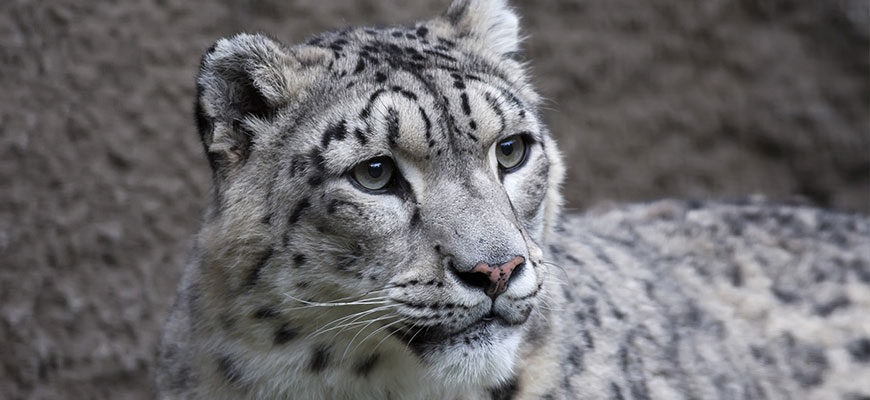On Dec. 11, the Zoo announced that its snow leopard, NeeCee had tested positive for SARS-CoV-2, the virus that causes COVID-19 in humans. The Louisville Zoo is happy to announce our three snow leopards are clear of SARS-CoV-2, the virus that causes COVID-19 in humans, and are back on exhibit rotation. No other animals are showing symptoms at this time.
Read the full media release here.
More about Snow Leopard Pass.
More about Kimti, our snow leopard with compromised vision.
Frequently Asked Questions
How are the cats doing?
The Louisville Zoo is happy to announce our three snow leopards are clear of SARS-CoV-2, the virus that causes COVID-19 in humans, and are back on exhibit rotation. No other animals are showing symptoms at this time. Read more about this update here.
How did the snow leopards get COVID-19?
It is suspected that the cats acquired the infection from an asymptomatic staff member, despite precautions by the Zoo. These precautions include following COVID safety protocols recommended by the Centers for Disease Control and Prevention (CDC) and Louisville Metro Health and Wellness, as well as wearing PPE when near the animals. All Zoo staff go through a health screening at the start of their day, stay at home if feeling unwell and get tested if symptoms arise.
What symptoms do the snow leopards have?
The Louisville Zoo is happy to announce our three snow leopards are clear of SARS-CoV-2, the virus that causes COVID-19 in humans, and are back on exhibit rotation. No other animals are showing symptoms at this time. Read more about this update here.
How did you test the snow leopards for COVID-19? Were all of the cats tested?
Fecal samples from all three cats were sent to the Veterinary Diagnostic Laboratory at the University of Illinois, College of Veterinary Medicine on Friday, Dec. 4, 2020. Due to mild symptoms, the Zoo elected to test feces rather than anesthetize the cats for more invasive diagnostics.
Do the cats have to quarantine?
The snow leopards were off exhibit while fecal tests showed they were still shedding the virus. All snow leopards have been cleared and are back on exhibit rotation. More information here.
Do the keepers have to quarantine?
Based on current knowledge, the risk of infected animals, including these snow leopards, spreading the virus to humans is considered low. COVID-19 remains predominantly a disease transmitted from human to human. Zoo keepers working with cats, non-human primates, bats and ferrets wear PPE when near the animals. All Zoo staff go through a health screening at the start of their day, stay at home if feeling unwell and get tested if symptoms arise.
Do any of the other animals have COVID-19?
No other animals are showing symptoms at this time.
Will the other animals be tested for COVID-19?
All animal testing must be approved by the state veterinarian and the public health veterinarian; indiscriminate testing is not encouraged. No other animals are showing symptoms at this time. We do not anticipate additional widespread testing among the Zoo animals.
Does having the snow leopards tested affect human resources for testing?
The testing of these cats was performed in veterinary laboratories. The resources used did not reduce the availability of tests for humans.
Can guests contract COVID-19 from animals at the Zoo?
No animals are showing symptoms of COVID at this time. Based on current knowledge, the risk of infected animals, including these snow leopards, spreading the virus to humans is considered low. COVID-19 remains predominantly a disease transmitted from human to human. Barriers at the Zoo would prevent any animal to human transmission.
What actions are keepers taking to protect themselves the other animals from COVID-19?
All Zoo staff are following COVID safety protocols recommended by the Centers for Disease Control and Prevention (CDC) and Louisville Metro Health and Wellness. Zoo keepers working with cats, non-human primates, bats and ferrets wear PPE when near the animals. All Zoo staff go through a health screening at the start of their day, stay at home if feeling unwell and get tested if symptoms arise.
What treatment did the snow leopards receive?
NeeCee, Kimti and Meru had very mild symptoms, and the Zoo monitored their health closely.
Is there a history of the virus in snow leopards?
This is the first confirmed case of SARS-CoV-2 infection in a snow leopard. This discovery contributes to the growing knowledge about this novel coronavirus and transmission between people and animals.

